Murphy's Law of Duck Hunting
If Murphy had been a waterfowler, how might have he applied his famous law to the quirky, ironic, and sometimes absurd principles that seem to govern our experiences in the marsh?
If Murphy had been a waterfowler, how might have he applied his famous law to the quirky, ironic, and sometimes absurd principles that seem to govern our experiences in the marsh?
By Brian Haines
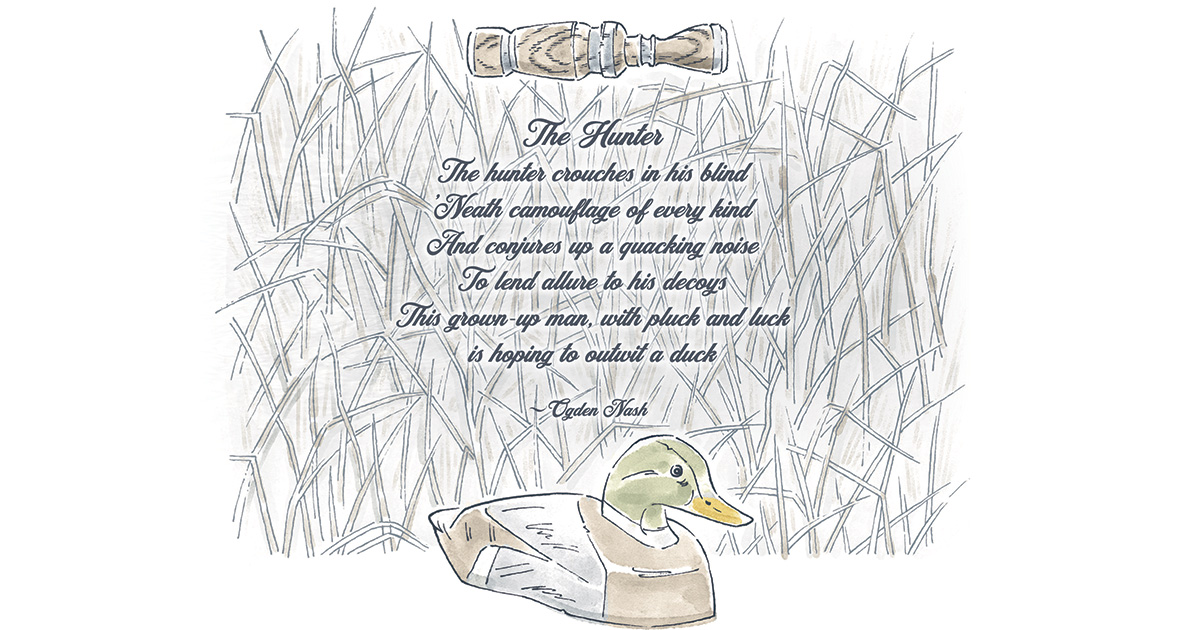
They say the definition of insanity is doing the same thing over and over while expecting a different result. If I had to guess, I’d say whoever came up with that definition was probably acquainted with at least a few duck hunters—those intrepid outdoorsmen and women who abandon a warm bed on a cold morning to sit over a spread of lifeless decoys, in awful weather, with sometimes only slim chances of bagging a duck. These hapless hunters often go home empty-handed, but they enthusiastically repeat this punishing routine the following morning and on many subsequent mornings over the course of a season. Sound familiar? It certainly does to me. I’ve performed this curious ritual day in and day out during duck season for over three decades.
Perhaps our crazed pursuit of ducks and geese is a direct result of the unique kind of madness that we encounter in the marsh. Simply put, crazy is as crazy does. Few know that better than the duck hunter. After all, dealing with the illogical is often the norm when it comes to waterfowling. The widely accepted definition of Murphy’s Law is “anything that can go wrong will go wrong.” After much thought, I’ve decided that if Murphy had been a duck hunter, he would have discovered that a similar law governs the exploits of those who pursue web-footed creatures: “The thing that you least expect to happen will almost always happen.” To support my case, I’ve compiled five examples of this law in action. I’m confident that any duck hunter worth his or her honey buns will back me up on the validity, and absurdity, of each of them.
1. When you leave the blind to change your spread, ducks will show up overhead.
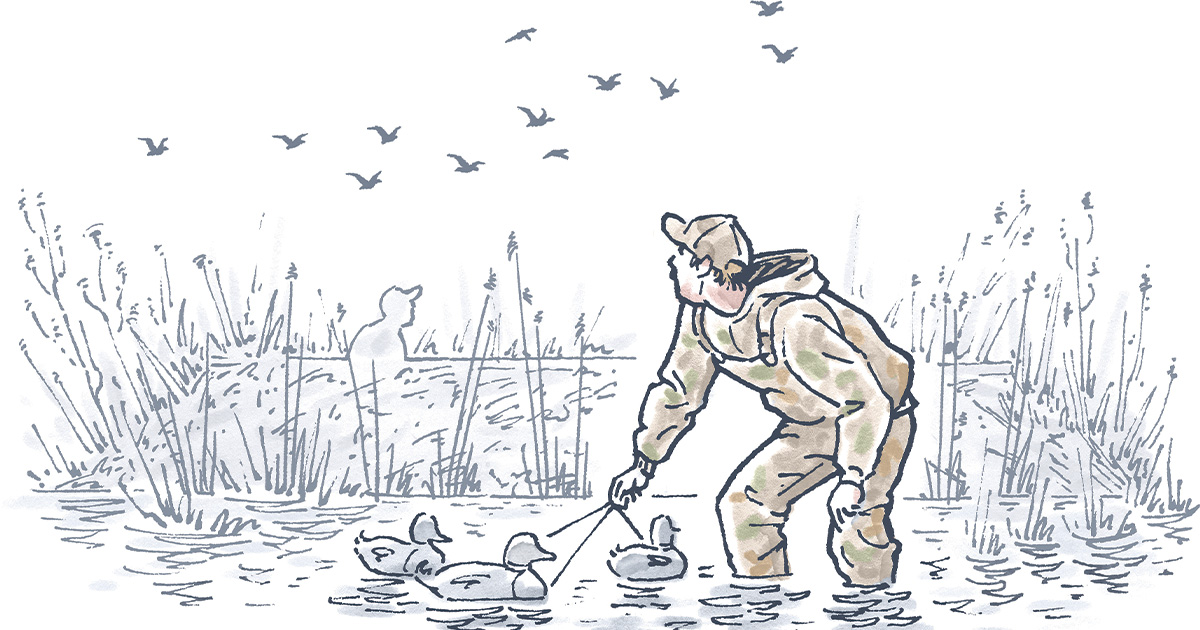
We all know what it’s like to sit in the blind, stare at our decoys, and decide that one or more need to be moved to create a more realistic deception. We often hesitate to do this, knowing full well that if any ducks fly by while we’re tending to the spread, they’ll certainly keep on flying. But when you have convinced yourself that a change in decoy management will tilt the odds in your favor, and you just can’t sit still for another moment, you trudge into the marsh and start rearranging. About this time, of course, you’ll spot some ducks that had been intent on landing among your perfectly positioned decoys. And, of course, they will spot you as well, quickly turning tail and flying off to find another slough with a more patient hunter in it. (Note: This rule also applies to answering nature’s call or picking up decoys at the end of a hunt.)
2. If you bring lots of ammo expecting some luck, chances are good that you won’t see a duck.
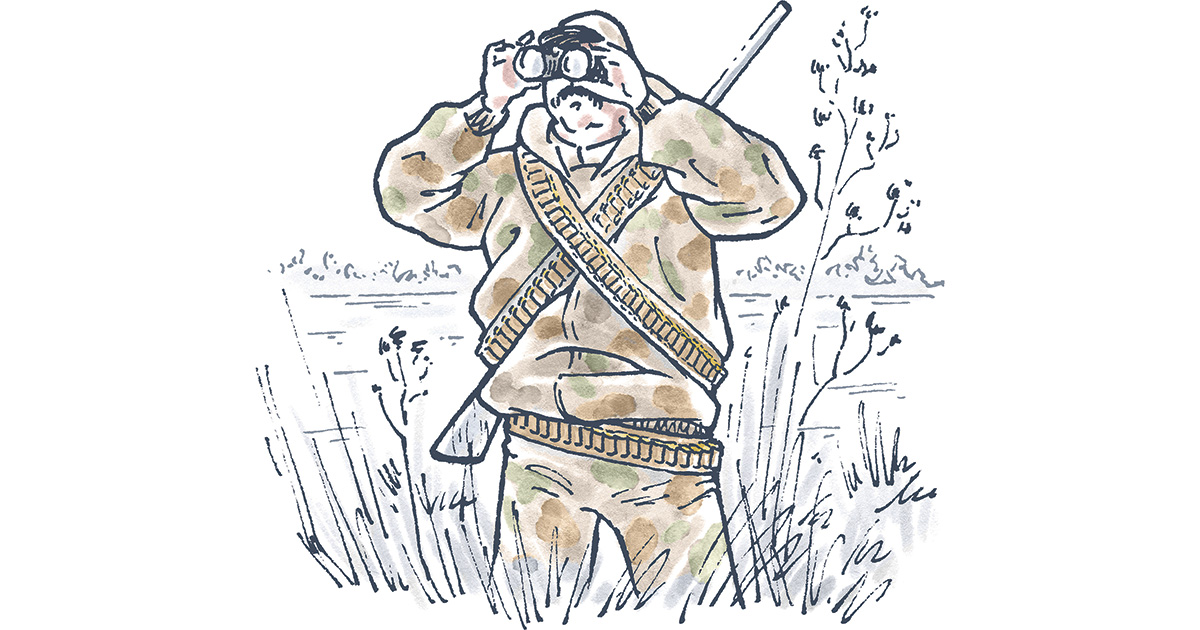
The world of waterfowl hunting is filled with curses, omens, ill fortune, and superstition. Some hunters are just plain lucky, some make their own luck, and some are always a day late and a dollar short. Many duck hunters can tell you about the curse of showing up to the hunt with a blind bag full of shotgun shells. For some reason, on those days when we expect and come prepared for fantastic shooting, we all too often head home with the same number of shells that we started with. On the other hand, if we hit the marsh with only a handful of shells, or forget to bring any at all, we’re virtually guaranteed to be deluged with ducks that are eager to join our decoys. These are the days when duck hunters become bird-watchers.
3. If you always set up with the wind at your back, your spread will look great, but success you may lack.
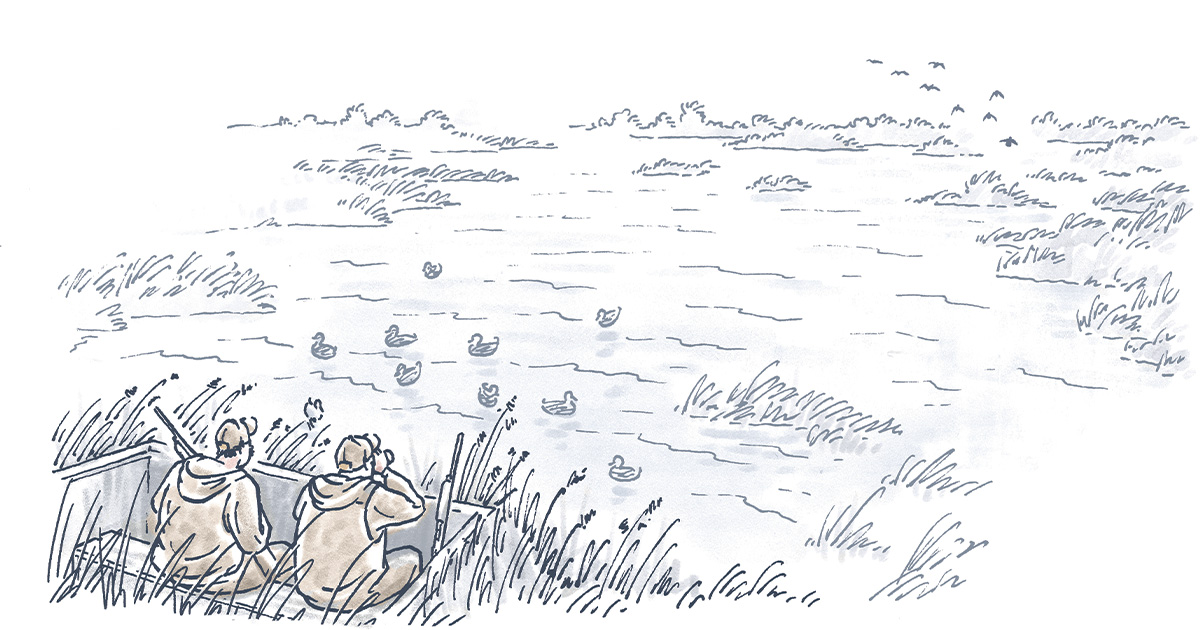
A cardinal rule for duck hunters is to set up with the wind at your back, because we all know that ducks like to land into the wind. On some occasions, however, just when you think you have the perfect setup, the ducks ignore it and land where they’re not supposed to. A few years ago I was keeping an eye on an expansive marsh that was known for attracting late-season mallards. For three consecutive days, a large flock of ducks had been hanging around in a very specific area of the marsh. When a day came that my father and I could get out and hunt, the wind shifted and blew a hearty stew of green muck into the corner where the mallards had been sitting. My dad wanted to set up by the muck, but I pointed out that such an arrangement would mean that the wind would be blowing into our faces. He said, “That’s where they’re feeding, so that’s where we should sit.” I thought differently and wanted to set up in the clear water with the wind at our backs.
We did it my way, and all morning we watched big northern mallards landing and hanging out in that green muck. I learned a valuable lesson. Yes, it’s important to try and set up with the wind at your back, but if the ducks are coming to a body of water specifically to feed, you should set up where the food is, regardless of the wind direction. Also, listen to those old-timers; sometimes they know a thing or two.
4. You sit and shiver on the coldest day, wrongly assuming that others want to stay.
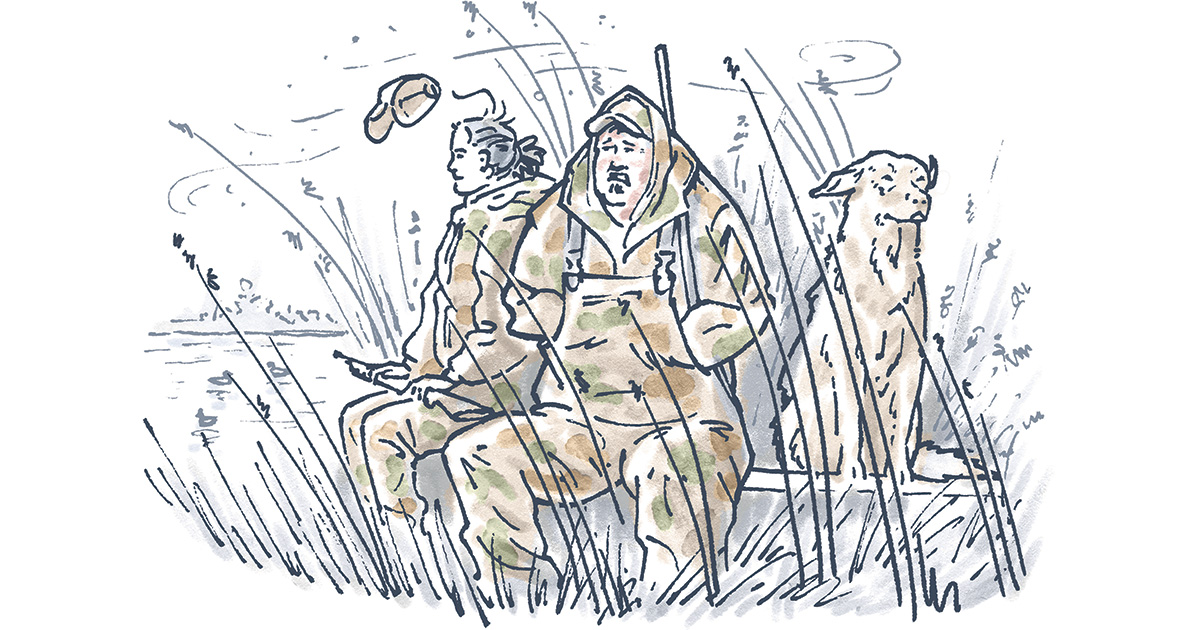
It’s safe to say that most ardent duck hunters have been frequent victims of frozen feet, numb fingers, and burning ears while watching a duckless sky. It’s times like these that we question our sanity and wonder if enduring these inhumane conditions is really worth it. When hunting with others, however, we tend to assume that our partners probably want to continue hunting, despite the conditions. So we stick it out and try desperately to wiggle our toes and hunker down in our coat collars to find some warmth. Ironically, and I know this from experience, our partners are usually just as cold as we are, but they are sticking it out for our sake. Next time, instead of being the tough hunter, just be the warm hunter.
5. That fateful day you decide to sleep late, your buddies will tell you the hunting was great.
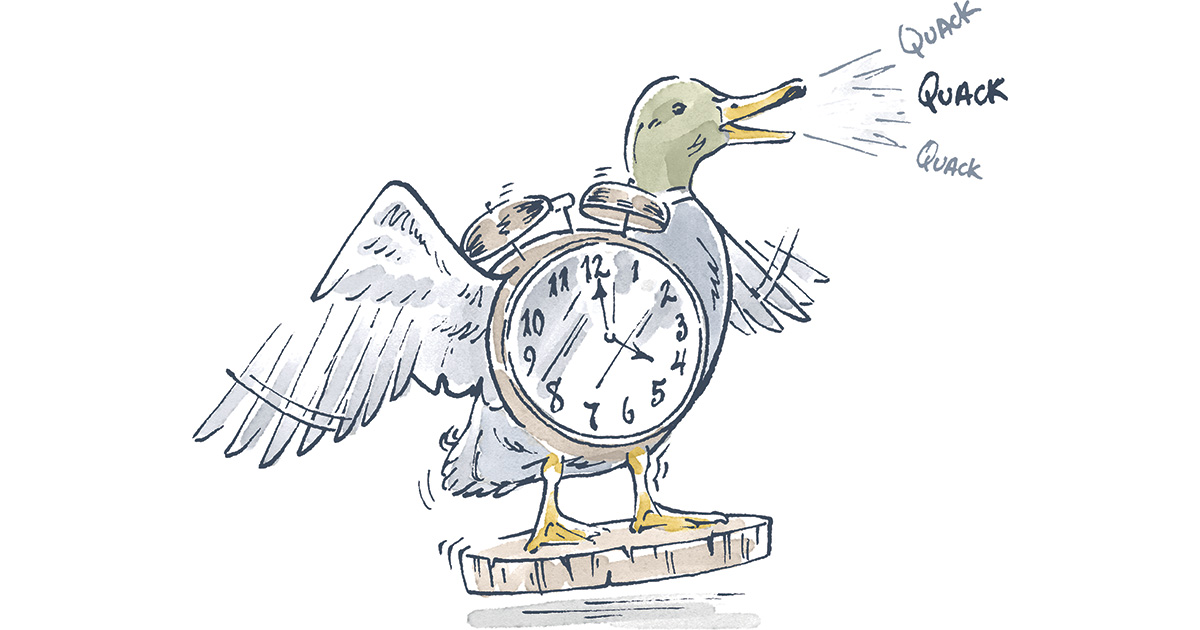
We’ve been dutifully hunting ducks all season. Opening weekend was a great success, but every day since has been marginal at best. Then, in late fall, a day comes when the leaves are gone, the north wind blows, most of the water is frozen, and the cold chills you to the bone. These are the mornings when some hunters give in to temptation and say, “The heck with it; sleeping in sounds like a better option.” If we choose to stay in bed, we are sure to hear from other hunters that northern ducks were passing through, that the shooting was phenomenal, and that, in fact, it was the best hunt of the season. So we wake up early the following morning and head to the marsh, filled with high expectations and a blind bag full of shells (see #2), only to find that the great flights of ducks have moved on.
Ducks Unlimited uses cookies to enhance your browsing experience, optimize site functionality, analyze traffic, and deliver personalized advertising through third parties. By continuing to use this site, you agree to our use of cookies. View Privacy Policy